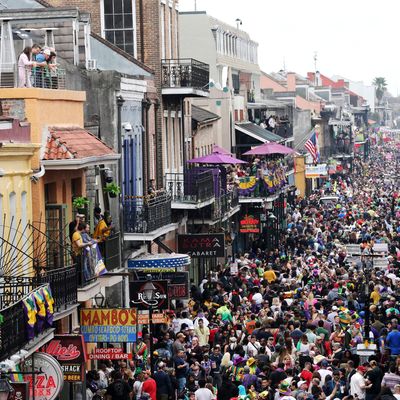
We’re committed to keeping our readers informed.
We’ve removed our paywall from essential coronavirus news stories. Become a subscriber to support our journalists. Subscribe now.
Louisiana announced its first confirmed case of the novel coronavirus on March 9. By that point, outbreaks of COVID-19 were already disrupting daily life in New York, Washington, and California, as the number of confirmed cases in the U.S. hit 1,000.
“This is going to continue to get worse for some period of time before it gets better,” Louisiana governor John Bel Edwards said at the time.
He was right. Two weeks later, Louisiana has seen 2,305 positive tests and 83 deaths from the coronavirus. The state also has the world’s highest daily average growth in cases, according to a study from the University of Louisiana at Lafayette.
“The case count is sobering,” Edwards said Wednesday. “This is a rapidly evolving and escalating public-health emergency. We have not begun to flatten the curve.”
Areas in and around New Orleans have been hit hardest. As of Wednesday night, the city had 827 confirmed cases and just 56 of 431 ICU beds available. Orleans Parish now has the highest number of deaths per capita of any county in the country.
“As far as fears it could be the next epicenter: I think that, unfortunately, I kind of think we are there,” Dr. Joshua Denson, a physician at Tulane Medical Center, told Fox News Thursday.
The situation is particularly bleak at one area retirement home. Lambeth House in New Orleans has seen 42 residents test positive for the virus and 11 die. Things have gotten so bad there that an expert in infection prevention and control has been dispatched from the CDC. Lambeth House isn’t alone — officials have identified six Louisiana nursing homes with clusters of infections.
As the picture has worsened in Louisiana, the governmental response has accelerated. On Monday, Edwards called on residents to stay home unless they need to perform essential tasks. On Tuesday, President Trump declared a major disaster in Louisiana, unlocking millions of dollars in federal funding. But on Wednesday, Dr. Anthony Fauci, the director of the National Institute of Allergy and Infectious Diseases, told CNN that the state should have taken action a “little bit sooner.”
“I’m not blaming anyone on that,” he said, “but you get caught unaware because the nature of this outbreak … It putters along and you think you’re okay, then it starts to go up a little, and bingo, it goes up in an exponential way. That’s what’s happening in New Orleans now.”
In the attempt to diagnose why Louisiana, and New Orleans in particular, has been hit so hard by the virus, some experts are pointing to Mardi Gras, which drew to a close on February 25. The Times reports:
“I think it all boils down to Mardi Gras,” said Dr. F. Brobson Lutz Jr., a former health director of New Orleans and a specialist in infectious disease. “The greatest free party in the world was a perfect incubator at the perfect time.” …
Dr. Catherine S. O’Neal, an infectious disease specialist and chief medical officer at Our Lady of the Lake Regional Medical Center in Baton Rouge, compared this year’s Mardi Gras to the infamous 1918 “Liberty Loan” parade in Philadelphia. That gathering took place in the midst of an influenza pandemic, packed 200,000 people onto city streets and likely contributed to Philadelphia’s grisly death toll, with more than 12,000 people dying within a six-week period.
Edwards supports the theory, too. “I happen to believe that people coming from all over the country and over the world that a fair amount of virus was seeded, if that’s the word,” he said this week.
If Mardi Gras sparked the outbreak in Louisiana, Tony Spell may help ensure it keeps going. The reverend at Life Tabernacle Church outside of Baton Rouge, Spell continues to hold large services in defiance of state orders to limit gatherings of more than 50 people.
On Sunday, more than 1,000 people attended church with Spell, who has previously claimed that his services can cure cancer.





























